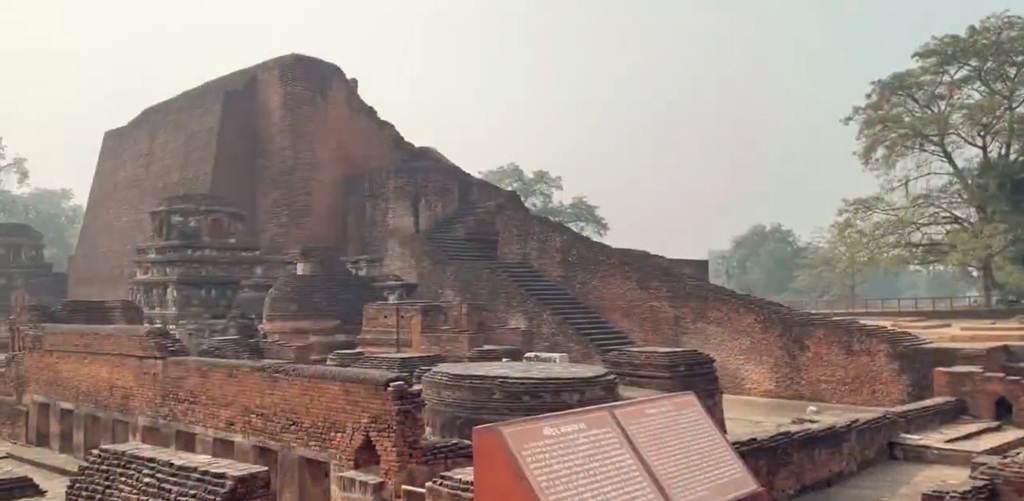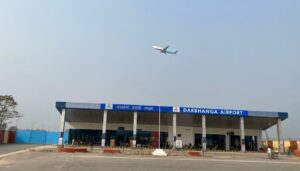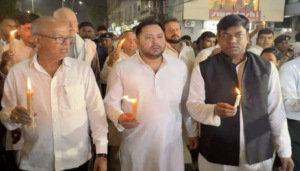Nalanda University Restoration: Rs 16 Crore Land Acquisition Underway to Expand Heritage Site

Nalanda: Former Regional Director of the Archaeological Survey of India (ASI), KK Muhammad, visited the ruins of ancient Nalanda University, a UNESCO World Heritage Site, to review the ongoing conservation and renovation work. He was briefed on the restoration efforts by Superintending Archaeologist Sujit Nayan, who shared detailed updates about the project.
Expressing a deep emotional connection to the historic site, KK Muhammad remarked, “I feel as though Nalanda is my birthplace. My association with this land goes back a long time.” Reflecting on its past glory, he recalled how the ancient residential university once attracted scholars from across the globe.
Call for Expansion of Excavation and Responsible Resettlement
Muhammad raised concern that only 10% of the ancient university has been excavated, while large portions remain buried. He emphasized the need to expand excavations, especially in the Begumpur area, where university remains have been discovered. However, he also stressed that any such expansion should be preceded by proper compensation and rehabilitation of affected residents.
Suggestions to Boost Tourist Experience
During his visit, KK Muhammad proposed several enhancements to improve the tourist experience:
- Separate entry and exit gates for better crowd management.
- An interpretation centre near the entrance to provide historical insights.
- Inclusion of guide fees in ticket pricing to ensure every visitor receives accurate and complete information.
Funding and Infrastructure Development Underway
Superintending Archaeologist Sujit Nayan revealed that ₹16 crore has been allocated to the district administration for land acquisition to expand the protected ruin complex. He added that the department is also working towards providing modern amenities for visitors, including:
- Non-permanent parking facilities on vacant museum grounds.
- Upgraded public toilets at the old ticket counter complex.
- A proposed vending zone for local shopkeepers, to streamline commercial activity and enhance tourist convenience.
Heritage, Tourism, and Economic Growth
Founded in the 5th century and functioning until the 12th century, Nalanda University was one of the world’s first residential centers of higher learning. Since being designated a World Heritage Site, it has attracted global attention for its historical significance and cultural value.
The current conservation efforts aim to preserve its legacy while also boosting tourism, which officials say will contribute to the economic upliftment of the local population.






